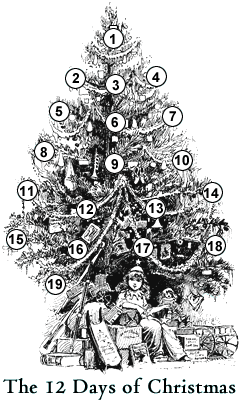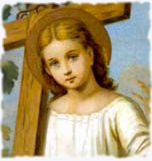FUNERAL MASS OF JOSEPH REDDINGTON
CHURCH OF SS JOHN CANTIUS AND NICHOLAS, BROXBURN
HOMILY PREACHED BY CARDINAL KEITH PATRICK O’BRIEN
MONDAY 18TH APRIL 2011
INTRODUCTION:
Just one week ago today Monday 11th April 2011 Joseph Reddington passed peacefully from this life into eternal life to be caught up in the mystery of the beatific vision of God in Heaven.
One might say a very ordinary and humble man – but a man of deep spirituality who had prepared for his death aided by his wife Ellen and his family in a very beautiful way.
JOE – THE MAN:
Joe Reddington was born on 13th December 1936 in West Lothian itself and literally spent all his life there. He never moved far within a limited circle – but was very well known not only in Bathgate and Broxburn but also in both Livingston Station and laterally Uphall Station.
He worked locally, had his close family and friends locally – but a high proportion of his time was spent working in the parishes in which he lived for a succession of difference parish priests but always working with and for the needs of his local community.
Of great concern to him was the beauty of the Church and invariably the Parish hall – and I was delighted when he offered his services in a voluntary capacity to me when I was appointed Archbishop some 25 years ago to help with the very considerable extent of land which was my garden, ably assisted by his dedicated wife Ellen.
Joe got to know the then Ellen Flannigan on a pilgrimage which they were both making for the Holy Year of 1975 to Rome. Their friendship developed into love and they had a wonderfully happy life together, both actively engaged in the service of others especially in their parish communities for the 33 years of their married life together.
Perhaps it was his memory of getting to know Ellen on that pilgrimage to Rome that inspired Joe to ensure that many other people who might not otherwise have been able to go on pilgrimage to join in one of Joe’s famous “holiday/pilgrimages” to one or other of the many shrines in Europe combining those pilgrimages with a happy and relaxed holiday.
How many of us here have enjoyed his pilgrimages to Fatima, Knock, Rocamadour, Ars, Hungary Lithuania and, of course to Lourdes – with a beginning of these holiday pilgrimages coinciding with my own appointment as Archbishop and concluding with our pilgrimage to Lourdes last year this being followed by my own silver jubilee pilgrimage to Rome.
One might say that Joe led a simple uncomplicated life – but a life dedicated to the service of others in his various parishes but especially within our own Archdiocese.
SPIRITUALITY OF JOE:
One might ask just what inspired Joe to give so much of his time and so much of his life to the service of others – quite simply through his love of gardening or through using his organisational skills with many, many hours of his free time in arranging these pilgrimages to which I have referred.
I think Joe’s spirituality can be summed up by the quotations in the Order of Service which we have with us today.
In the first reading from St John’s Gospel we are reminded of that simple statement from Jesus as to who he was. We are told that Jesus said to the crowd “I am the living bread which has come down from Heaven”. And going from that statement as to who he was, Jesus indicated what was to happen – those who ate that bread which was himself would live forever, for the bread which he was giving “is my flesh for the life of the world”.
Joe believed that statement of Jesus Christ; and Joe followed the instruction of Jesus to “eat this bread of life” whenever he could.
I know that whenever possible especially during his years of retirement he was a dedicated attendee at daily Mass in his parishes. Daily Mass on the various pilgrimage journeys which he led was not an option but a necessity – and along with my brother priests I remember celebrating Mass and distributing Holy Communion in a great variety of what we might say “unusual” places! I do not think any of us will forget those wonderful celebrations which we enjoyed in the major pilgrimage centres of the world including St Peter’s Basilica in Rome and the vast underground Basilica in Lourdes – but also intimate homely Masses celebrated quite literally in wayside shrines and small parish churches – but even on the bus in which we were travelling as well as on one occasion in the centre of a motorway roundabout!
The other instruction which Joe followed quite literally to the letter was that of the Mother of Jesus namely Our Blessed Lady herself – following the instruction which Our Lady gave to St Bernadette on 23rd February 1858 when Our Blessed Lady indicated to Bernadette that a shrine was to be erected in Lourdes and as she said:”People should come here in procession”.
Again Joe took those words quite literally and with increasing experience and great expertise he ensured that a steady supply of pilgrims was available to go to Lourdes itself year by year involving also a pilgrimage to other shrines such as Rocamadour, Lisieux, Nevers – to name but a few.
Joe loved the processions and to ensure that the processions were more than adequately led Ellen and Joe commissioned the most beautiful Archdiocesan banner ever seen in Lourdes namely that of our own Archdiocese which banner bravely led our pilgrimage groups year by year. And of course no procession would be complete without a candle and I can say without any fear of contradiction that “Joe’s candles” were among the largest ever seen at Lourdes and perhaps led to the permanent back injury of those men delegated to carry the candle especially to the candle shrine near the Grotto on the final day of every pilgrimage.
CONCLUSION:
There is an old saying that “God cannot be outdone in generosity!”
Joe along with Ellen was more than generous to God with his life, with his time, with his energy and with his expertise. But whatever Joe did for God we know that God can do even greater things.
Joe very humbly accepted the presentation of the Bene Merenti Medal and Scroll (literally ‘well done!’) in the presence of Ellen by myself, as a representative of Pope Benedict XVI on 30 March 2008. It is this medal which now lies on his coffin and will remain in the proud possession of Ellen.
However, Joe was not really too concerned about earthly awards – rather was he concerned with his spiritual growth and indeed what God could do for him through his prayer and the Sacraments and through the intercession of Our Blessed Lady.
It is indeed almost a minor miracle that with our shortage of priests and sisters at this present time whenever Joe was latterly ill in hospitals or at home invariably he managed to receive that same bread of life almost day by day – even up to the day before he died. I believe that again he received Our Lord in Holy Communion on three separate occasions with the final occasion being accompanied once more by the Sacrament of the Sick. What a great privilege was his!
On thinking again of those words of Our Blessed Lady to St Bernadette and of the processions which Joe organised in honour of Our Blessed Lady especially Our Lady of Lourdes we can fondly imagine now Joe in procession with the angels and saints before the throne of God Our Father in Heaven to hear those words from Jesus himself: “Well done good and faithful servant enter in to the joy of your Lord!”
However on this occasion Joe would not ask us to be in any way presumptuous but being the man he was he would simply ask us to pray for the happy repose of his soul. This we now do in this Holy Sacrifice of the Mass but realising that like St Joseph his Patron Saint Joe Reddington followed the example of St Joseph and quite simply throughout his life “did what the Lord asked him to do”!
May God indeed grant him eternal rest and comfort and strengthen Ellen, his family near and far who loved him so much and all those who have benefited from knowing him and sharing in his pilgrimages on earth.





 The name of Jesus is a name of gladness, a name of hope and a name of love. A name of gladness, because if the remembrance of past transgressions afflicts us, this name comforts us, reminding us that the Son of God became man for this purpose, to make himself our Savior.
The name of Jesus is a name of gladness, a name of hope and a name of love. A name of gladness, because if the remembrance of past transgressions afflicts us, this name comforts us, reminding us that the Son of God became man for this purpose, to make himself our Savior.








